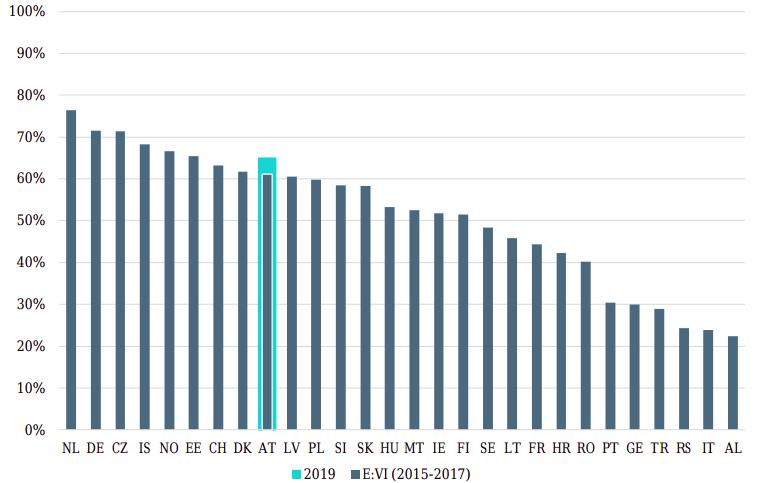Blog
The analysis of EUROSTUDENT Focus Groups is crucial for illuminating the problems concealed by average indicators
Vienna, Austria, 03 November 2020
Interview with Martin Unger from The Institute of Advanced Studies on Austrian EUROSTUDENT VII results
Highlights
- In case of a very diverse student population like in Austria, detailed data for EUROSTUDENT Focus Groups is crucial because it highlights the issues faced by particular groups of students.
- Increasing grants available for students and non-taxable income rates seems to have improved Austrian students’ financial situation but it has also increased the time spent on gainful employment and reduced the time spent on studying.
- Further development of EUROSTUDENT questionnaires needs to address the fact that more than 50% of students completed the survey from a mobile device.
How would you describe the social dimension of Austrian students based on Eurostudent VII?
Compared to many other European countries, Austrian student population is very heterogeneous. On average, the social situation is relatively good – Austria is in the top third of the EUROSTUDENT countries for almost all indicators. But the average is not a particularly suitable indicator when the population is so heterogeneous. This conceals many problems and student groups with particular difficulties (e.g., international students from non-German speaking countries, single mothers, students aged 25-30 who started their studies via the “second chance route”) only become visible when the survey data is analysed in more detail, as the concept of Focus Groups in EUROSTUDENT allows.
What has changed compared to Eurostudent VI or previous years?
The survey was conducted in summer 2019. In 2017, the student grants were finally increased quite significantly. The economy and the labour market were also quite strong during the past years, making it easy for students to find jobs. The positive effects of this are clearly visible in our data. In addition, students from third countries have been allowed to work more hours and the level of non-taxable income has been increased. As a result, students’ financial situation has improved but they have also increased the time spent on gainful employment and reduced the time they spend on studies. The motive for gainful employment "so that I can afford more" has also increased, while "out of financial necessity" has decreased. However, the latter is still the most frequently cited motive. Altogether, there has been a 4% increase in working students (see the Figure).

Source: EUROSTUDENT VI Database, Studierenden-Sozialerhebung 2019
What were the most surprising or important results?
One result shocked me: For the first time in 10 years, we asked the students again about how well the skills developed in upper secondary schools prepared them for HE. We have very many different types of schools in the upper secondary level: vocational and general. Depending on the school’s vocational orientation, students rate their skills very differently but only a few find themselves really poorly prepared for their specific HE studies. However, of those students who have attended general academic school, 23% report lacking the computer skills needed for their specific studies in HE. That alone is a shocking figure in 2020, but 10 years ago it was 24% – so there is no progress in a decade in such an important skill!
What makes you happy about the results? What makes you worried?
I am happy because many indicators have improved. And that is exactly why I am also concerned: when one looks at the improved average, the poor situation of individual groups is faded out. I am also worried that we have practically no data on the social situation during Covid-19. There are no taxes or social security contributions to be paid for marginal jobs (under the taxable income limit). These marginal jobs are an important source of income for many students, but many of these jobs have been eliminated due to Covid-19. Since they are only "marginal" jobs, there is no compensation from the state as there is for "real" jobs. Students are therefore hit particularly hard but unfortunately we don't know anything specific about their current situation.
